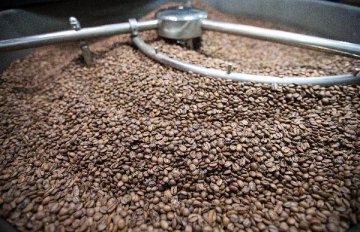BEIJING, April 22 (Xinhua) -- Situated on a road less than 2 km in the Haidian District of Beijing are research institutes and a university that not only share the same location, but also a same role: builders of the Belt and Road.
"We have research institutes on railway construction, agricultural technology, metallurgical research on this road. They are all making contributions to building the Belt and Road," said Lei Yumei, deputy Party secretary of the district's Beixiaguan community.
Situated at the road's southernmost end is Beijing Jiaotong University, which established a railway technology education and service center in 2013.
In the past six years, the center has carried out 69 training projects on railway construction in 46 countries and regions, most of which are participating in the Belt and Road Initiative.
"The training covers topics such as railway planning and construction, railway operation and management and is mainly for senior managers and mid-level technical personnel," said Zhu Xiaoning, director of the center.
"The training projects not only help promote the implementation of the railway construction projects, but also enhance cultural exchanges between countries," Zhu said.
"Many of the managers and personnel didn't know China well before the training. But afterward, the earlier prejudice they held against our railway construction technologies was gone. They gave us a thumbs-up," Zhu said.
The China Academy of Railway Sciences Corporation Limited (CARS), which neighbors Beijing Jiaotong University, is also carrying out railway construction projects in Kenya and Indonesia.
"We are responsible for the supervision, consultation and related technical services of the construction of the Jakarta-Bandung High-Speed Railway," said Wang Jijun, representative of CARS' office in Indonesia, who has been working in Indonesia for more than three years.
In 2015, China and Indonesia signed a joint-venture agreement on the construction of the high-speed railway between Jakarta and Bandung, the first such project overseas.
"We are now working hard to make preparations for its completion in 2021," Wang said.
Apart from railway construction, agricultural technologies have also been shared along the Belt and Road.
The Chinese Academy of Agricultural Sciences (CAAS), at the road's northernmost end, has provided more than 70 hybrid rice varieties to Belt and Road countries including Indonesia, Pakistan and the Philippines for variety testing and seed production in recent years.
Joint hybrid rice research centers have also been established in Indonesia and Pakistan to provide high-quality and high-yielding rice varieties to local farmers.
"We are very proud that so many from the university and institutes on this road are builders of the Belt and Road. We will try our best to provide services for them and do our part in building the Belt and Road," Lei Yumei said.

















Latest comments